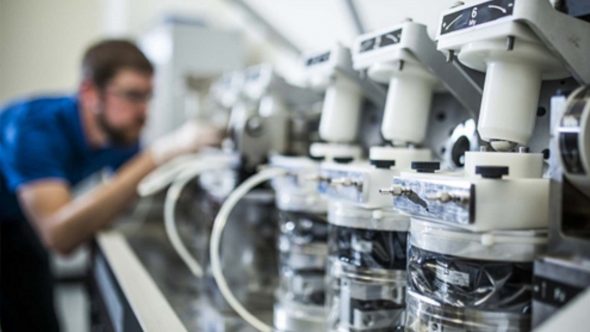Australia's governments, industry, and research community have a legacy-defining opportunity to seize the future by boosting research commercialisation with a new breed of 'bench-to-boardroom scientists'.

In its submission to the Government's University Research Commercialisation consultation, Science & Technology Australia says Australia can and must do more to commercialise world-leading research more consistently and at a far greater scale.
But to get there will require strategic investment and developing the specialised skills to train more Australian researchers to be 'bench-to-boardroom scientists' and 'connectors of commercialisation'.
Up to 2000 top researchers Australia-wide should be trained for specialist roles to propel the translation of promising technologies and become linchpins liaising between industry and university research.
"Turning more of Australia's 'nearly there' research into 'really there' products and services would generate vast economic and social benefits for the country from a relatively modest public investment," said Science & Technology Australia Chief Executive Officer Misha Schubert.
"If we create a culture of closer engagement, greater sovereign capability, and even a handful of billion-dollar Australian grown and owned start-ups, we can powerfully shift the dial on research commercialisation."
"This has the potential to generate significant new jobs growth and whole new industries in our economy."
Past attempts to invigorate commercialisation have looked at industry and research as two different entities to be forced together, with limited success.
"A more successful approach is the concept of 'baton passing' research along the stages to commercialisation – an idea recently put forward by Australia's Chief Scientist Dr Cathy Foley," said Ms Schubert.
"The key to achieving that would be to train scores of bench-to-boardroom scientists as the connectors of commercialisation – the people that can bridge the so-called 'valley of death' between blue sky research and industry."
"We don't need every researcher to become a commercialisation expert. We should focus instead on equipping up to 2000 leading researchers with the specialist skills and remit to champion the translation of technologies."
"They would be a small proportion of the research workforce with the potential for vast social and economic impact."
"This will require cultural change in our universities towards researchers. The nature of innovation is that some failure is inevitable, so we need the researchers supported and able to 'fail fast' and move on, just as they need to be applauded for success."
The submission also details the changes needed to researcher incentives to ensure they are able to move between research and industry without penalty.
It additionally argues for industry to have a single point of entry through a lead researcher and projects to have strong autonomy from the universities that may house them.






